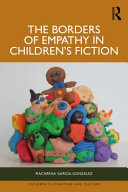2018 School Spending Survey Report
The Borders of Empathy in Children’s Fiction
Routledge.
(Children’s Literature and Culture).
Jun. 2025.
174p.
Tr $190. ISBN 9781003522225.
COPY ISBN
VERDICT International in scope, this book provides an opportunity for educators to examine previously held thoughts about the limits of children’s literature. Recommended for researchers.
RELATED
ALREADY A SUBSCRIBER? LOG IN
We are currently offering this content for free. Sign up now to activate your personal profile, where you can save articles for future viewing





Be the first reader to comment.
Comment Policy:
Comment should not be empty !!!